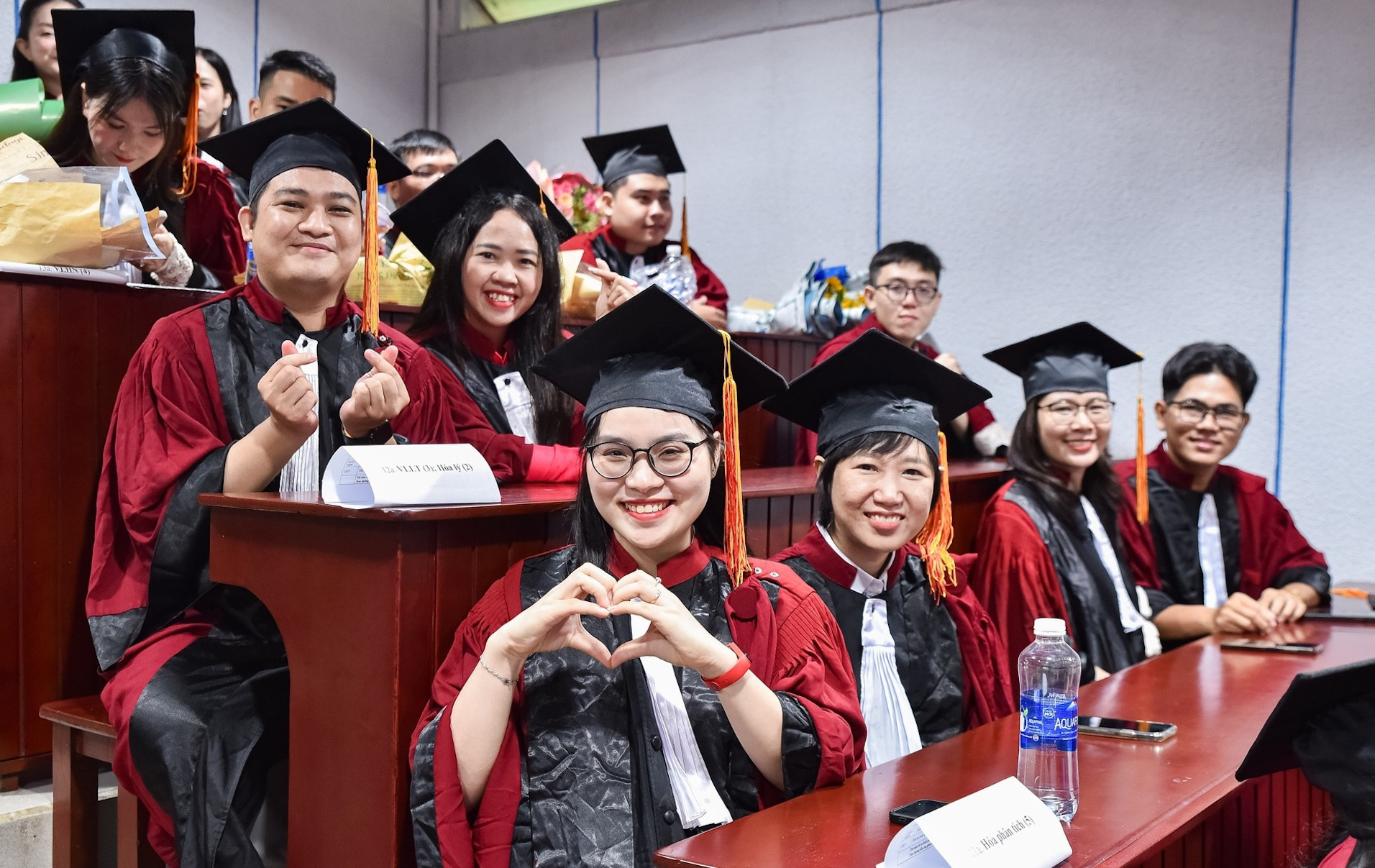
Vietnam National University HCMC (VNUHCMC) provides international-standard doctoral training, where research candidates can defend their dissertation within two years without independent review if they are the lead author of at least three conference reports or scientific articles.
According to the pilot doctoral training regulations issued by VNUHCMC, there are two training methods: full-time intensive research and a combination of scientific research with coursework.
For full-time intensive research, candidates complete a complete review essay, a thesis, and a dissertation within 12 months of admission.
Candidates must be the lead author of at least 3 conference reports or scientific articles published in journals listed in Web of Science, Scopus, or equivalent, including at least 1 Q2 or higher article.
Candidates combining scientific research and coursework must meet the requirements set by the Ministry of Education and Training and additional publication requirements specified by the university.
VNUHCMC will recognize equivalent scientific publications listed by the State Professorial Council, aligned with international practices and standards, ensuring quality and compliance with current regulations.
Candidates can defend their dissertation ahead of schedule if they have outstanding academic and research achievements. The total duration for completing their training program is at least 2 years.
VNUHCMC’s member schools will issue detailed regulations on procedures, criteria, and standards for candidates to defend their dissertation early and publish these regulations and processes on the university’s website.
The new regulations also exempt the independent review process when the PhD student is the main author of at least 3 conference reports/articles published in journals listed in Web of Science or Scopus or equivalent, of which at least 1 article is Q2 or higher with content suitable for the research topic and content of the thesis.
Universities will specify procedures for exempting the independent review process based on evidence of candidates’ international publications and reports to VNUHCMC. Universities are responsible for verifying the relevance of candidates’ publications to their dissertation research based on recommendations from the academic council or specialized unit.
VNUHCMC will strengthen academic integrity and accountability. When necessary, universities have the right to require candidates to provide explanations regarding academic integrity to relevant parties. The explanation content will be published on the university’s website.
Why pilot a new standard?
Associate Prof Tran Cao Vinh, Deputy Director of National University HCM City, said that in the context of deep integration and global competition, doctoral training is a key pillar in elevating the status of research universities.
At leading Asian universities such as Tsinghua University (China), National University of Singapore, and University of Tokyo (Japan), research candidates play a central role in scientific research activities.
At Tsinghua University, research candidates account for 51 percent of postgraduate students and 38 percent of the total student body. This factor is the foundation for maintaining and improving the university’s ranking on international university rankings.
According to Vinh, in recent years, doctoral training at VNUHCMC has seen many improvements but still faces limitations. Specifically, the actual time to complete training courses ranges from 5 to 7 years, while training lacks flexibility to attract learners. And the training process is heavily administrative.
Additionally, most research candidates have to work and study at the same time, which affects research quality. The number of leading professors in some fields remains limited, and internationalization and connection to scientific research are still restricted.
“These shortcomings are barriers to improving the quality of doctoral training at VNUHCMC,” said Vinh.
The Deputy Director of VNUHCMC said the pilot doctoral training regulations serve as a breakthrough solution to expand the scale and improve the quality of doctoral training while establishing a more flexible legal framework.
These regulations shift from administrative management to constructive governance, establishing a general regulatory framework. Based on this, universities can develop detailed and specific regulations while granting authority to academic councils to ensure academic integrity and flexibility.
“This is a pioneering step to realize the goal of training high-level human resources, gradually approaching international standards,” according to Vinh.
VNUHCMC in late May announced the collaboration with 10 enterprises for customized training and scientific research to develop high-quality human resources, technology transfer, and innovation.
The 10 committed enterprises include: VNG Corporation (VNG), Coteccons Construction Joint Stock Company (Coteccons), Thanh Thanh Cong - Bien Hoa (TTC AgriS), Tetra Pak Vietnam (Tetra Pak), Nestlé Vietnam, Suntory PepsiCo Vietnam (SPVB), Asia Commercial Bank (ACB), Dien Quang, DNA International Hospital, and Sunwah.
VNUHCM, one of Vietnam’s two national university systems, was established in 1995. VNU-HCM comprises 10 training institutions, including 8 member universities, offering a wide range of academic disciplines.
Le Huyen